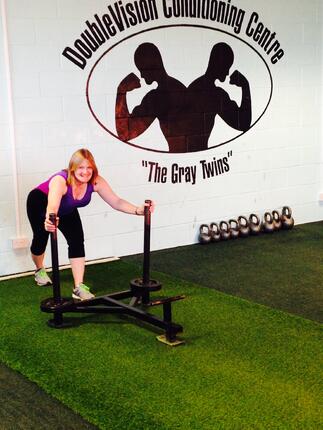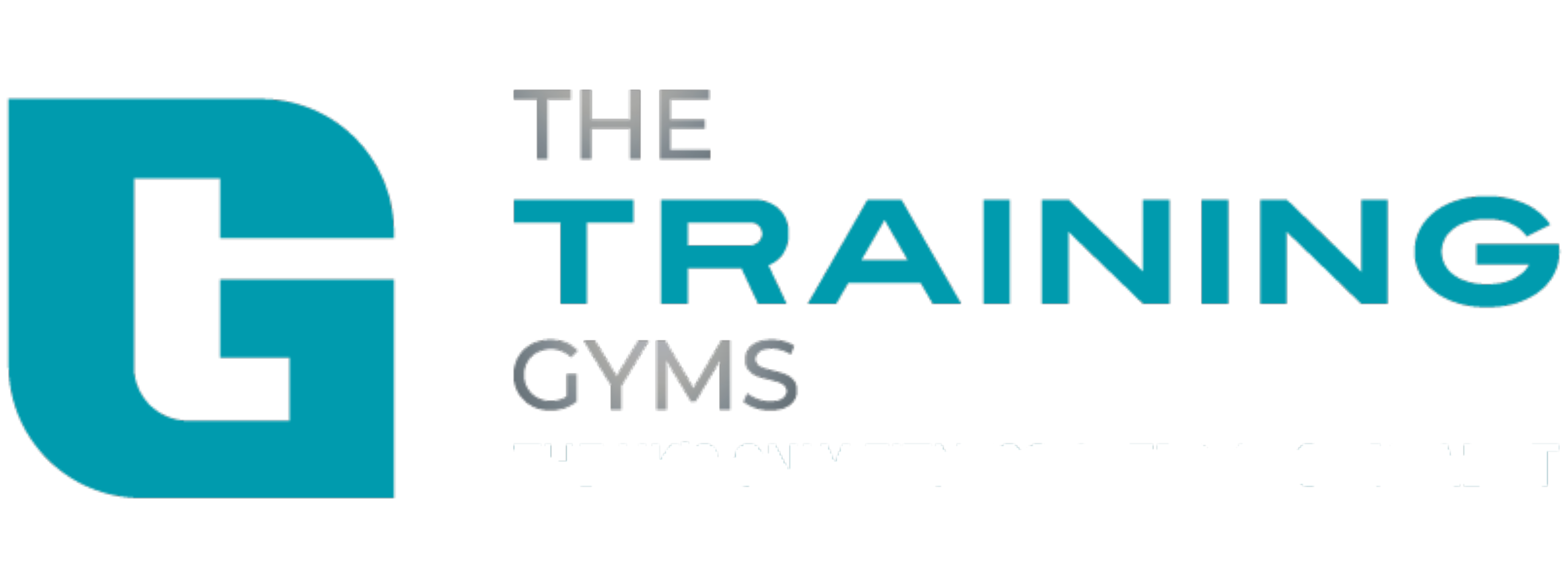 Nathan: Hi, this is Nathan from the DVCC and I am here with Julie Harding who has been a client at the DVCC for some time now, and I think many people reading this will benefit from hearing her story; essentially how she’s managed to consistently train after having surgery on her shoulder.
Nathan: Hi, this is Nathan from the DVCC and I am here with Julie Harding who has been a client at the DVCC for some time now, and I think many people reading this will benefit from hearing her story; essentially how she’s managed to consistently train after having surgery on her shoulder.
So let’s get straight into it; today we’re talking about the progress you made since your shoulder surgery. Can you take me back to how and when you injured it, Julie?
Julie: It was last Christmas, we go to Canada for Christmas, and I fell when I was skiing. It was a very small fall; I wasn’t doing anything exciting; I just fell and felt something go in my shoulder. I thought it would be alright and carried on. For a few days it was really painful and then it seemed to ease off a little bit, although it was still there. So I just thought it would get better on its own, as you do!
Nathan: As you do – carried on… Ok, you said it was quite painful, was it immediately painful right from the start or was it something that kind of carried on for a long period afterwards?
Julie: Yes, I couldn’t lift my arm up after it; getting dressed and stuff in the morning was really difficult.
Nathan: So there was noticeable damage done?
Julie: Yes there was.
Nathan: How did that affect your training?
Julie: When I came back after Christmas, I realised there were lots of things I couldn’t do; I couldn’t do any weights, I couldn’t do press ups – I could still do things like the prowler, and the dreaded TRX! But there were obviously things I couldn’t do, but you guys were really good and found different things for me to do.
Nathan: We adapted it as much as we could for you. Before that, you were doing everything that we would ask you to, normally, wouldn’t you? There was nothing you couldn’t do.
Julie: Yes, there was nothing I couldn’t do and I was training 4 or 5 times a week.
Nathan: Did that affect you emotionally, with not being able to do things, or did you just kind of power through it?
Julie: Well, I went through it, as long as I was exercising I was ok, but you get fed up when you can’t do everything.
Nathan: Did it ever cross your mind that you wanted to stop training and let it heal, or were you always in the mindset of …
Julie: No, no, no – I just carried on – I really was trying to ignore it, thinking it will get better on its own.
Nathan: I can understand that. That’s a good mentality, to keep training, and I’m glad you did.
At that point, we put you in the DVCC pain free shoulder system and during the process we realised that there was a deeper problem and encouraged you to get it looked at by a specialist. That must have been quite scary; what did they say to you?
Julie: Yes, it took a bit a bit of nagging from DV and my husband, Nick! But eventually I went to see a consultant and he sent me for a scan; he told me I had torn the tendon and that it needed reattaching and it was going to be a good 6-9 months recovery – that was really scary actually.
Nathan: Apart from being scary, how did it make you feel? I’m sure you were worried, did you worry that your shoulder would never be the same again?
Julie: Well I did, yes. He said the operation has varying degrees of success; he said I may not get back to where I was; on the other hand, it’s possible. So you just don’t know really, until you have it done.
Nathan: So there was an element of doubt that you were going to be able to do exactly what you were dong before.
What were the first steps of you getting back into exercise?
Julie: Before I had the operation I was determined that I wasn’t going to stop, so I had that in my mind. I think it was maybe two weeks after the operation, when I came in to see Ross and basically said, “Right, what can I do?” I couldn’t drive at that point, I had my arm in a tight sling against my body, so I was getting a taxi, that’s how determined I was.
Nathan: That’s amazing determination.
Julie: Ross was brilliant; I came in twice a week for a one to one; we did what we could – mostly legs, obviously – squats, lunges, wall sits etc.
Nathan: So a lot of leg work! Do you feel like your legs have got stronger because of that?
Julie: Oh, definitely, yes.
Nathan: So, while you weren’t improving your shoulder, you were still able to focus on your legs and still get your training in.
Julie: Yes, which was really important. If I hadn’t been able to come in and train, I would have sat at home and ate the things I shouldn’t have eaten!
Nathan: Which is easy to do! Coming into the gym and training, even when you have got an injury, even if you are focusing on different parts of the body, keeps you in the mentality of coming to the gym, so that was really good.
Julie: Definitely, and because you’re training, then you think more about what you are eating, because you want to get it right.
Nathan: It keeps you going in the right direction and keeps you feeling positive.
Julie: Absolutely, yes.
Nathan: I have never, touch wood, had a serous injury, but I can imagine it can be quite de-motivating. Did you have days when you thought “I don’t want to train today” or were you completely positive throughout the whole situation?
Julie: No, I got frustrated because I couldn’t do more actually; I really enjoyed the training that we did, although my legs might tell you a different story! I got very frustrated because I could only come twice a week really, but it was probably the right thing to do.
Nathan: Yes, because you wouldn’t want to over-train.
Julie: No, so it was more frustration; I didn’t ever want to stop, which amazed me actually. This is not the Julie of a few years ago!
Nathan: So you have changed your habits and your mentality about training?
Julie: I have – hugely changed my habits, yes.
Nathan: This is excellent, I am really glad to hear that. So, after your surgery, what were your main concerns about training, were you concerned that, for example, it wouldn’t progress as fast as it has done or that it would hurt too much?
Julie: Yes, I was worried about hurting it; I wanted to progress quickly, because I’m not a very patient person; I was worried it would take a lot longer. Actually, it has been 7 months now, I think, which is more or less what he said. I am not quite back to full training with my arm.
Nathan: But you have got a full range of movement in your arm, haven’t you?
Julie: A full range of movement; now it’s just building up the strength. It’s amazing how weak it gets, you don’t realise how weak it becomes from not using it.
Nathan: I can completely understand that. Can you explain to me how it feels to train with an injury and how you have managed to stay so positive, because a lot of people could probably take a step backwards from training and think “My shoulder is injured, therefore I’m not going to do anything”, so how did you manage to get through that and how did you manage to stay so positive?
Julie: It would have been easy just to say “I can’t drive” and “I feel sorry for myself because I’ve had an operation and my shoulder hurts, so I’m just going to sit here and do nothing”. I don’t know where the motivation came from, I think maybe just because I was so used to the training; but actually, Ross was the one who got me through it because I was very frustrated at not being able to train properly – and I was de-motivated some days, because I wanted to do more; but he was excellent, he really got me through it with lots of encouragement, he kept me going. You are very good at motivating people here, that’s what it is all about.
Nathan: Definitely. It sounds like you kind of focused all your attention into it as well; you really focused your energy into making sure you were coming in. You are right, being injured and not being able to drive would be a very, very easy option out, but to come back into the centre two weeks after a major surgery is amazing!
Have you got anything else to add to it Julie, like how long had you been training with the DVCC before it happened?
Julie: I think I started in August last year, so not that long. 4 or 5 months, I guess. Now I would just say to anybody, if you have an injury, get in here somehow and talk to you, because you will help and people need that encouragement and motivation. Because it’s easy to sit at home and not do anything, so you need someone.
Nathan: And you feel sorry for yourself a little bit.
Julie: Yes, you do feel sorry for yourself because you hurt!
Nathan: Yes I’m sure it does! I can only imagine how much it must hurt.
Julie: And you still hurt when you go home from training – in other places! It takes your mind off your shoulder!
I would encourage anyone to do their best to continue doing whatever they can; I know it is not easy sometimes, but it does you good to get back into it as soon as you can.
Nathan: I am sure it helped you mentally as well.
Julie: Definitely.
Nathan: Excellent! Julie, it’s been a pleasure talking to you today – I’m Nathan from the DVCC and I hope you have a very nice day!
Julie: Thank you








